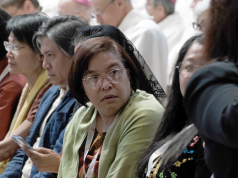Advocates from the LGBT community denounced the killing of a transgender woman in Pangasinan as a case of prejudice ahead of the results of an investigation.
Jessa Remiendo, who was identified as a transwoman, was reportedly found dead on Patar Beach in Bolinao, Pangasinan on September 17.
Based on a report, Bolinao town police chief Major Dennis Cabigat described it as “unusual.”
As of press time, local authorities have yet to issue updates on the case.
Despite the ongoing investigation, some people already described the crime as a form of discrimination or hate crime against the LGBT community, specifically transgender people.
The University of the Philippines-Babaylan expressed anger over the crime against Remiendo and called for the police to conduct a fair investigation on it.
“We demand that the police immediately respond to this case with a fair and extensive investigation and the prosecution of the perpetrators. We also call on the local government units of Bolinao and Pangasinan to prioritize the resolution of this case, and to enact protective measures for their LGBTQI community in the absence of a national anti-discrimination law,” UP-Babaylan said.
[TRIGGER WARNING: Hate Crime]Earlier today, the mutilated body of Jessa "Shantal" Remiendo, a transgender woman, was…
Posted by UP Babaylan on Tuesday, September 17, 2019
This was also seen as a crime targeting the LGBT community by supporters of the proposed Sexual Orientation and Gender Identity and Expression Equality measure.
They put up hashtags #JusticeforJessa and #Sogieequalitynow on Twitter Philippines.
One user said that the incident is proof of discrimination against transgender men and women are in the Philippines.
“Ngayon, sabihin mo sa mga mata namin na hindi kami pinapatay dahil nais naming mamuhay nang totoo,” she said.
Another transgender sister of our was brutally murdered and HATE CRIMED this week. At ang lakas pa ng loob niyong sabihin na hindi kami nadidiscriminate.
Ngayon, sabihin mo sa mga mata namin na hindi kami pinapatay dahil nais naming mamuhay nang totoo. #SogieEqualityNOW pic.twitter.com/OP5XlzzzAy
— Gigi on YouTube (@gigiesguerra) September 17, 2019
Another shared screenshots of negative comments made against the victim on Facebook.
Filipinos: “The LGBT community has equality in the Philippines!! They’re asking for too much”
Also Filipinos: pic.twitter.com/USjTjUY6ER
— Galo Aquino ⚖️ (@galo_aquino) September 17, 2019
Noreen Barber, president of the United Pangasinan Association LGBTQ+, said that Remiendo’s death sent fear among the transgender community in Pangasinan.
“I couldn’t imagine it happening. She was so kind. She was family-oriented,” she said.
The debate on whether or not to pass the long-running SOGIE Equality Bill in the Senate erupted last August when a transgender woman was driven away from the women’s washroom in a mall in Quezon City.
The proposed measure had been stuck in the plenary for over two decades and had to be refiled by various groups and lawmakers for it to push forward.
The latest version, Senate Bill 689 titled “Anti-Discrimination on the Basis of Sexual Orientation, Gender Identity and Expression” was also re-filed this year.
Senate President Tito Sotto and Sens. Nancy Binay and Joel Villanueva questioned some provisions of the bill deemed as subjective for legislation, which main author Sen. Risa Hontiveros says can be debated on.
Moreover, President Rodrigo Duterte also expressed through spokesperson Salvador Panelo that he prefers a more general anti-discrimination bill drafted by Sen. Sonny Angara over Hontiveros’ SOGIE bill.
Hate crime
The phrase hate crime had been thrown around online conversations following Remiendo’s death even if authorities have yet to identify the motive for the killing.
There are nuances in using hate crime to describe a particular killing.
Encyclopedia Britannica defines a hate crime as a type of physical violence or harassment “motivated by a bias against characteristics of the victim considered integral to his social identity, such as his race, ethnicity or religion.”
“Some relatively broad hate-crime laws also include sexual orientation and mental or physical disability among the characteristics that define a hate crime,” the article said.
Mental Floss also made a simple explanation of how severe hate crimes are compared to other violent acts.
“Hate crime laws are usually designed to go hand-in-hand with the actual offense the person is charged with, such as assault or murder, putting greater severity on the crime due to its hateful motivations. For example, it’s not illegal to randomly spew racial epithets—but if you go so far as to punch someone because of your racial bias, the crime becomes much more serious in the eyes of the law.”










